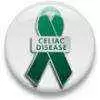-
Welcome to Celiac.com!
You have found your celiac tribe! Join us and ask questions in our forum, share your story, and connect with others.
-
Celiac.com Sponsor (A1):
Celiac.com Sponsor (A1-M):
-
Get Celiac.com Updates:Support Our Content
Storing Flour
-
Get Celiac.com Updates:Support Celiac.com:
-
Celiac.com Sponsor (A17):
Celiac.com Sponsor (A17):
Celiac.com Sponsors (A17-M):
-
Recent Activity
-
- gregoryC replied to gregoryC's topic in Traveling with Celiac Disease15
Celebrity Cruise for Gluten Free
The best gluten-free pizza is on the Celebrity Summit, but the Celebrity Beyond Pizza still beats and land gluten-free pizza. -
- gregoryC replied to gregoryC's topic in Traveling with Celiac Disease15
Celebrity Cruise for Gluten Free
The gluten-free cakes at cafe al Bacio -
- gregoryC replied to gregoryC's topic in Traveling with Celiac Disease15
Celebrity Cruise for Gluten Free
The gluten-free section on the buffet -
- knitty kitty replied to Bindi's topic in Super Sensitive People38
Refractory or super sensitive?
@glucel, I agree with @trents. You can still do the AIP diet while taking aspirin. I'm one of those very sensitive to pharmaceuticals and have gotten side affects from simple aspirin. Cardiac conduction abnormalities and atrial arrhythmias associated with salicylate toxicity https://pubmed.ncbi.nlm.nih.gov/3952006/ Another part...
-



Recommended Posts
Archived
This topic is now archived and is closed to further replies.